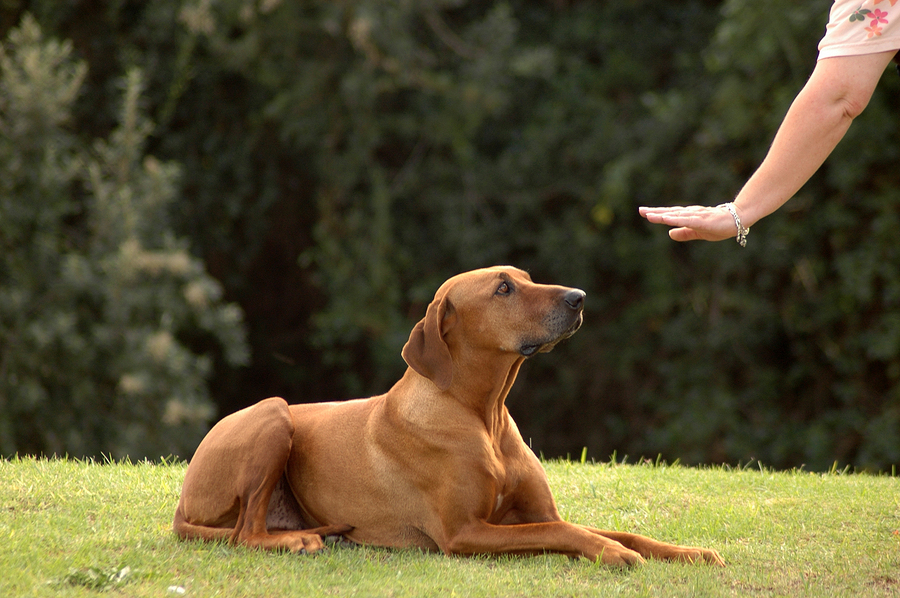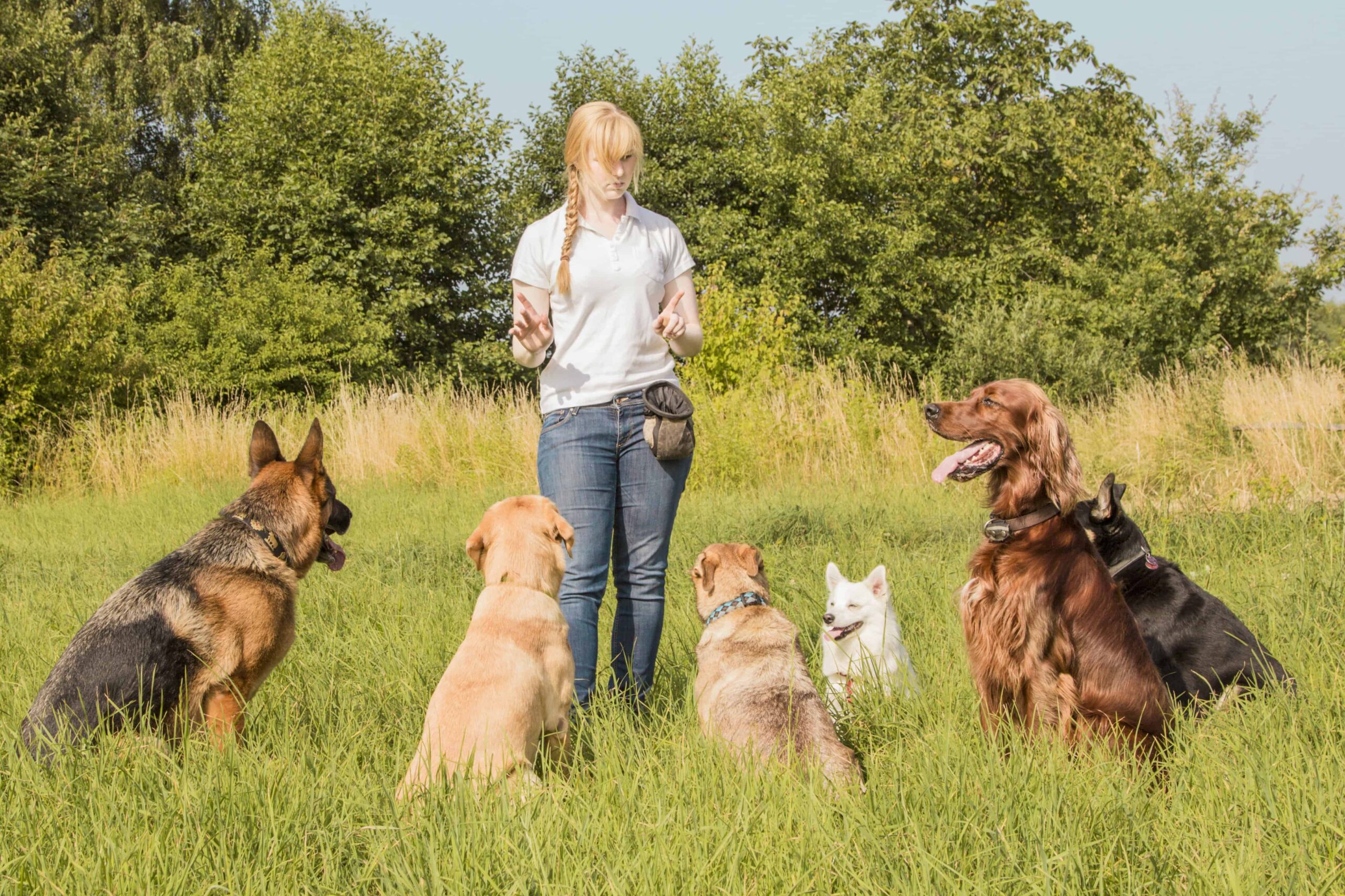Effective Dog Training Tips to Correct Common Behavioral Problems
Effective Dog Training Tips to Correct Common Behavioral Problems
Blog Article
Top Canine Training Strategies Every Proprietor Must Know

Positive Reinforcement Methods
Making use of favorable reinforcement techniques is vital for effective pet training, as it cultivates a trusting bond between the fitness instructor and the pet dog. This method concentrates on fulfilling preferable behaviors as opposed to punishing undesirable ones, creating an atmosphere helpful to learning. Incentives can include treats, praise, or playtime, which motivate dogs to repeat the behaviors that gain them these rewards.

Moreover, this approach enhances the canine's interest for training sessions. They are more engaged and receptive when pet dogs connect training with positive experiences. Dog training. Past immediate habits modification, favorable reinforcement motivates a collective connection between the pet and trainer, minimizing stress and anxiety and concern
To make the most of effectiveness, it is critical to supply benefits immediately, making certain the pet dog links the habits with the reinforcement. Essentially, favorable support methods not just generate better-trained pet dogs but additionally advertise an unified partnership in between canine and proprietor.
Clicker Training Approach
The remote control training approach is a highly reliable technique that builds on the concepts of favorable reinforcement by adding a distinctive noise to mark preferred actions. This method uses a tiny portable tool that generates a clicking audio, permitting fitness instructors to communicate with their pet dogs in a immediate and clear way. When a pet dog carries out an actions that the proprietor wants to encourage, the clicker is triggered, followed by an incentive, usually in the type of treats or praise.
The secret to effective remote control training exists in uniformity and timing. It is essential to click at the specific moment the desired actions occurs, ensuring that the dog links the sound with the activity and the subsequent reward. This approach not just improves communication yet likewise fosters a stronger bond between the proprietor and the dog, as it encourages involvement and interaction during training sessions.
Remote control training can be related to a range of habits and commands, from standard obedience to much more complicated tricks. Its versatility and efficiency make it a favored method amongst specialist instructors and pet dog owners alike, leading the way for a responsive and trained canine friend.
Leash Training Essentials
Effective chain training is essential for making certain a risk-free and delightful strolling experience for both pets and their proprietors. Dog training. Chain training should start very early and be come close to with persistence and consistency. Start by picking an ideal leash and collar or harness. A level collar might help some pets, while others might take advantage of a harness that lowers pulling.
Present your dog to the leash gradually, enabling them to explore it in a comfortable atmosphere. This entails satisfying your canine for walking next to you rather than pulling ahead.
If your dog begins to pull, stop walking right away. Furthermore, method numerous walking settings to assist your pet adapt to interruptions.
Routine method will strengthen your pet's understanding of leash rules. Keep in mind that leash training is an ongoing procedure; persistence and uniformity will produce the ideal outcomes, fostering a favorable experience for both you and your canine buddy.
Socializing Techniques
Socializing is a crucial aspect of pet training that must preferably begin throughout puppyhood but can be advantageous at any kind of age. Efficient socialization assists canines develop self-confidence and lowers the probability of behavior problems. To look at more info apply effective socialization approaches, subject your pet to a variety of environments, individuals, and other pets.
Start with controlled settings, such as pup courses or organized playgroups, where young pets can connect safely. Gradually present your dog to new experiences, consisting of different sounds, surface areas, and tasks. Make sure these encounters are gratifying and favorable to develop a feeling of safety.
For adult canines or those doing not have direct exposure, start with low-stress circumstances. Short, positive communications with pleasant humans and tranquil canines can produce favorable associations. Make use of treats and praise to reinforce desirable actions throughout these experiences.

Uniformity and Patience
Acknowledging the significance of consistency and perseverance in dog training is crucial for achieving long-term results. Training a canine is a gradual process that needs a structured method and unwavering commitment from the owner. Each command or behavior need to be reinforced regularly to aid the pet understand what is expected of them. Inconsistent training can lead to complication, making it challenging for the canine to realize actions or commands, eventually impeding progress.
Pets, like human beings, learn at their very own pace. This cultivates a relying on connection in between the pet and owner, motivating a more willing and passionate learner.
To grow consistency and perseverance, establish a routine training routine, make use of the same commands, and guarantee that all relative apply the same training principles - Dog training. By doing so, you develop a stable setting helpful to discovering, enabling your pet to prosper and create into a mannerly buddy
Final Thought
To conclude, reliable dog training methods, such as favorable support, clicker training, and proper leash training, are crucial for fostering a healthy owner-dog connection. Additionally, implementing basics socializing strategies and maintaining consistency and patience throughout the training process contributes dramatically to a pet dog's general wellness. By integrating these approaches, pet proprietors can assist in the development of well-adjusted, obedient pet dogs, ultimately improving the lifestyle for both the pet dog and the proprietor.
Among the most famous methods are favorable reinforcement, remote control training, and leash training, each offering special advantages that add to a well-behaved canine. As we explore these fundamental methods, it becomes apparent that mastering their nuances can substantially impact the training experience and the dog's general behavior.Utilizing positive support techniques is important for effective pet training, as it cultivates a trusting bond between the instructor and the canine.In conclusion, efficient dog training strategies, such as positive support, clicker training, and proper chain training, are important for cultivating a healthy owner-dog relationship. By incorporating Full Report these techniques, canine proprietors can assist in the development of well-adjusted, obedient pet dogs, eventually improving the high quality of life for both the canine and the proprietor.
Report this page